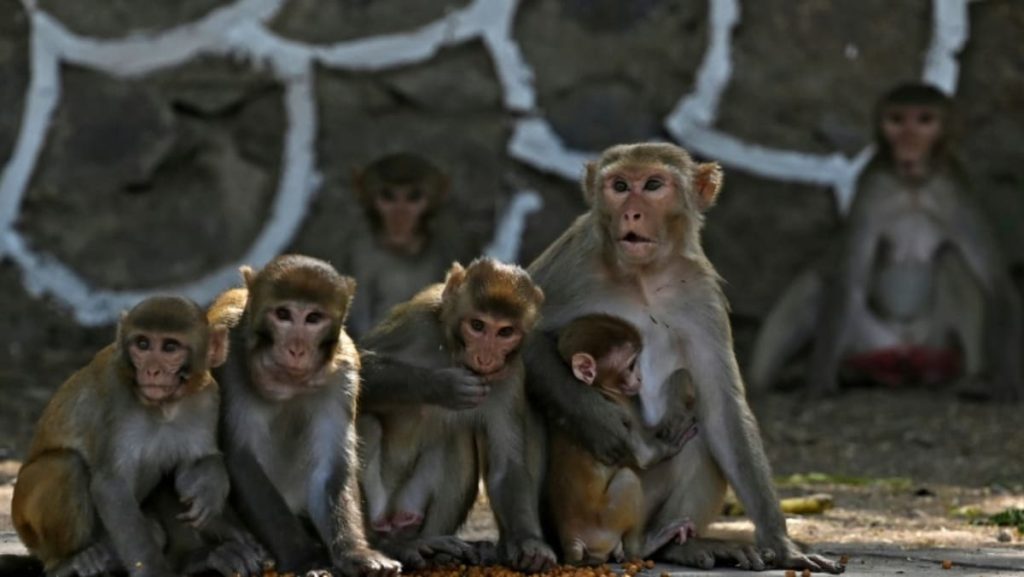Dozens of monkeys in India have tragically drowned in a well as a result of a severe heatwave gripping the country. The sweltering temperatures, which have soared over 45 degrees Celsius in some areas, have also caused lakes to dry up, leaving wildlife struggling to find water. In the state of Jharkhand, nearly 40 monkeys perished in a well in Palamu district where the lack of water has been particularly severe. Local government forest officer Kumar Ashish stated that the troop of monkeys had jumped into the well but were unable to escape, leading to their untimely demise. A team of forest officials is currently investigating the incident and awaiting post-mortem results to determine the exact cause of death.
The heatwave in northern India has been ongoing for weeks, prompting concerns about the impact on both humans and wildlife. Last week, an Indian court called on the government to declare a national emergency due to the heatwave, citing the hundreds of deaths that have already occurred as a result of the extreme weather conditions. With temperatures reaching dangerous levels, animals have been forced to search for water in villages and other human settlements, leading to tragic incidents like the mass drowning of monkeys in the well. The situation has raised alarm bells about the increasing frequency and intensity of heatwaves in the region, with researchers attributing these changes to human-induced climate change.
While India has historically experienced high temperatures during the summer months, climate change has been identified as a key factor in exacerbating heatwaves. Scientists have observed a trend towards longer, more frequent, and more intense heatwaves in the country, highlighting the urgent need for action to address the impacts of climate change. The recent incident involving the monkeys drowning in the well serves as a stark reminder of the consequences of global warming on both wildlife and ecosystems. As temperatures continue to rise and extreme weather events become more common, it is crucial that measures are taken to mitigate the effects of climate change and protect vulnerable species from further harm.
The tragic deaths of the monkeys in Jharkhand underscore the urgency of addressing climate change and its devastating impact on both humans and wildlife. As temperatures soar in India and other parts of the world, the effects of global warming are becoming increasingly apparent, with heatwaves, droughts, and other extreme weather events posing a serious threat to ecosystems and biodiversity. The drowning of the monkeys in the well is a poignant example of the challenges faced by animals in the face of climate change, highlighting the need for sustainable practices and policies to protect vulnerable species and habitats. By raising awareness about the dangers of climate change and advocating for meaningful action at the local, national, and global levels, we can work towards a more sustainable future for all living beings on Earth.
The tragic incident in Palamu district serves as a somber reminder of the urgent need to address the root causes of climate change and take decisive action to protect vulnerable communities and wildlife. As temperatures continue to rise and extreme weather events become more frequent and intense, the impacts of global warming are becoming increasingly severe, highlighting the need for coordinated efforts to reduce greenhouse gas emissions and adapt to a changing climate. By raising awareness about the dangers of heatwaves and other climate-related disasters, we can empower individuals and communities to take meaningful action to safeguard our planet for future generations. The drowning of the monkeys in the well is a heartbreaking example of the toll that climate change is taking on wildlife, underscoring the need for immediate and sustained action to address this urgent crisis.













